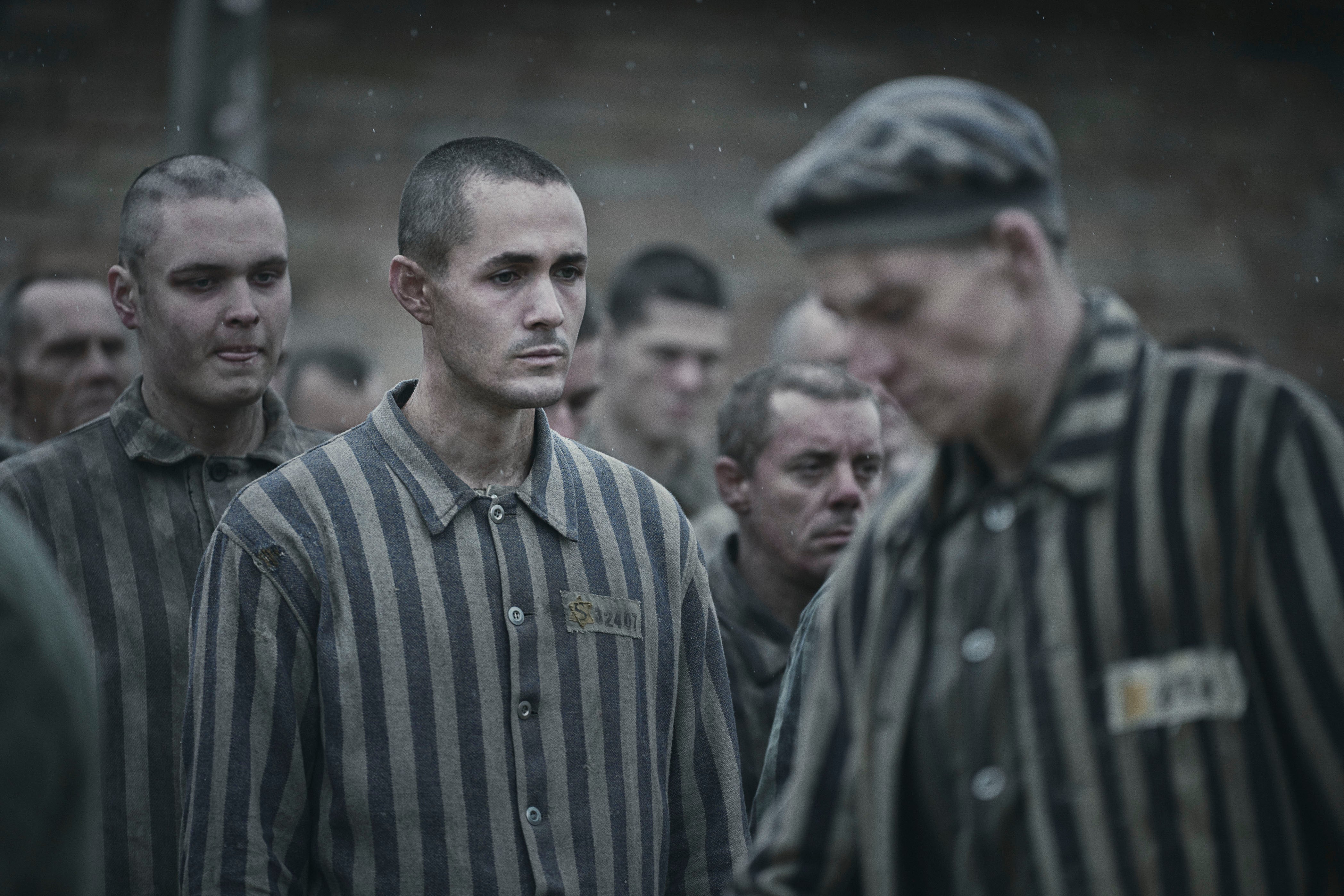The Tattooist of Auschwitz review: Strange work adds little to an over-exploited chapter of our shared history
In this TV adaptation of Heather Morris’s controversial bestseller, Harvey Keitel and Jonah Hauer-King play the older and younger versions of tattooist Lali Sokolov
Eighty years ago this spring, the Red Army began the process of liberating the Nazi concentration camps of Eastern Europe. In January 1945, they arrived at Auschwitz, in southern Poland. What they found there would come to define the Holocaust, the Second World War, and our understanding of evil. It has also, counterintuitively, spun off an aesthetic symbology that has inspired generations of writers and filmmakers, producing books, films and TV, the latest of which is Sky Atlantic’s six-part adaptation of The Tattooist of Auschwitz.
In a Melbourne apartment, sometime in the early 2000s, an elderly Lali Sokolov (Harvey Keitel) sits down with nervy aspirant author Heather Morris (Melanie Lynskey). Over tea, Lali relates his story. It is the tale of how, as a young Slovak Jew, Lali was sent to Auschwitz, where, through a process of self-preservation, he ended up as one of the camp’s tattooists, branding new arrivals with a serial number. It is during one of these sessions that the young Lali (Jonah Hauer-King) meets Gita (Anna Próchniak), a vivacious young prisoner being sent over to the women’s camp. “So, this is a love story,” he tells Heather, 60 years later. A love story, of sorts.
The novel that the real Morris extracted from these interviews – The Tattooist of Auschwitz – became an international bestseller. It also faced criticism, in a report laid out by the Auschwitz Memorial Research Centre, for its inauthentic depiction of life in the concentration camp and a series of factual errors. The report also accused the book – like The Boy in the Striped Pyjamas before it – of assuming an approach that foregrounds the “most common and most evocative symbols” such as the gates of the camp, bearing the Arbeit Macht Frei slogan; the experiments of Josef Mengele; the gas chambers; and, yes, the tattoos. It is perhaps with these critiques in mind that the show opens with a caption saying the series is merely “inspired by” the book, rather than a direct adaptation.
To create this distance between the adaptation and its contested source – while retaining the international name recognition, obviously – conversations between older Lali and Heather are introduced as a framing device. “I haven’t got long,” he tells her. “I am old.” It allows Keitel to bring a gravitas that the younger cast lacks, even if his accent is as indecisive as the filmmakers’ creative choices. The tale that unfolds, a fictionalised version of the real Lali’s incarceration and escape, is unflinching. The portrait of Auschwitz is every bit as brutal as Steven Spielberg’s in Schindler’s List, even while the melodrama of Lali and Gita’s love story introduces wistful looks, stolen kisses and sweeping violin strings. Romanticised memories are disputed, but only after the romanticised version is shown.
The question of how we depict the Holocaust – and whether we should – is a vexing one. If Jonathan Glazer’s The Zone of Interest, which is set in the commandant’s household at Auschwitz and which won the Oscar for Best Foreign Language Film this year, was focused on finding the flickering of evil amid the banality of human life, then The Tattooist of Auschwitz is the inverse, a show awash with visible evil, where humanity pricks through like shards of light through slatted wood. Lali’s relationship with Baretzki (Jonas Nay), a troubled, violent guard whom Lali tries to comprehend as a lonely, indoctrinated outcast, is at the heart of this. “Did you trust Baretzki?” Heather asks him, many years later. “No,” he replies. “But I think he needed me.”
What does this love story, which blossoms in spite of the pair’s circumstances, tell us about the past, the present or the future? If it is not instructive, then the horrors of extermination become ornamental, a way of simply raising the emotional stakes. It begs a false equivalence (“He was the same age as my daughter,” Heather weeps, as she hears of the death of one of Lali’s campmates; the blue skies of 1940s Poland are compared to the blue skies of Noughties Australia) that has little new to say. Instead, it is more wonky half-German, half-English accents; more portentous ruminations on the human condition; more vast CGI depictions of industrialised mass slaughter. As trucks filled with contorted, emaciated corpses roll across the screen, it is hard not to think of how close we are to a world where a prompt engineer inputs some tawdry description, and an AI spits out a new vision of these horrors we can never know. The desire to be unflinching creates the risk that we will forget how to flinch.

The Tattooist of Auschwitz is a strangely self-hating work. In attempting to disavow its airport-novel, schlocky origins, it inadvertently creates a new tension. Don’t avert your gaze, we are told, but in turning the worst act of suffering and murder ever perpetrated by humans against humans into yet another tale of survival, The Tattooist of Auschwitz adds little to an over-exploited chapter of our shared history.
Join our commenting forum
Join thought-provoking conversations, follow other Independent readers and see their replies
Comments
Bookmark popover
Removed from bookmarks